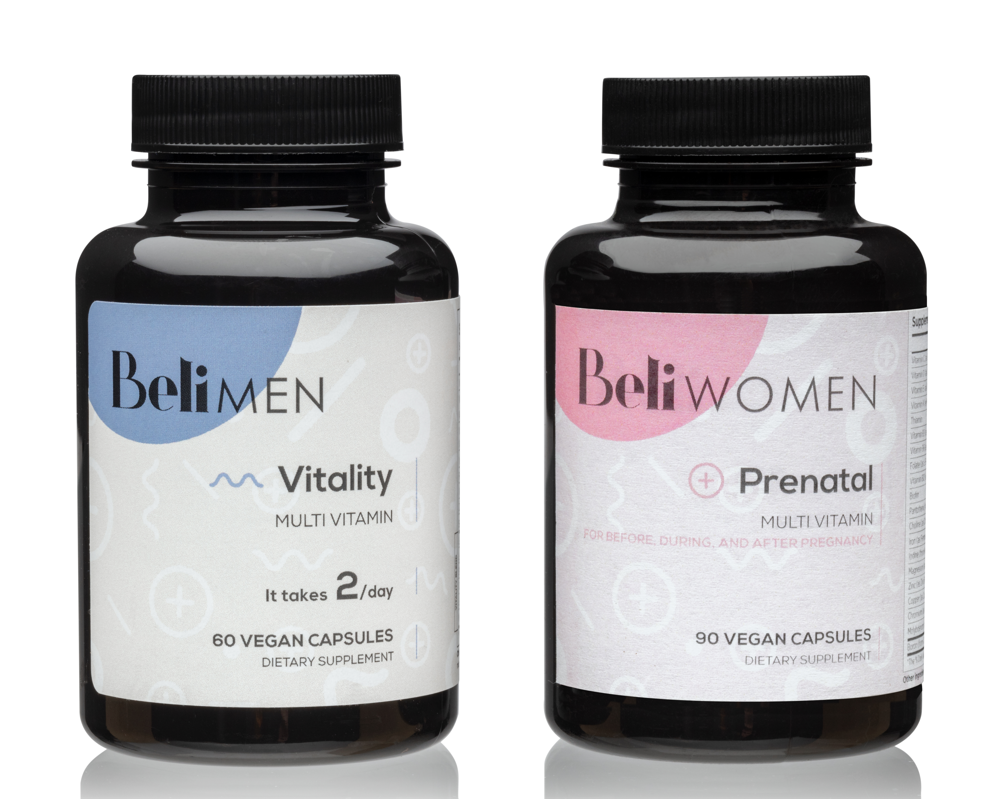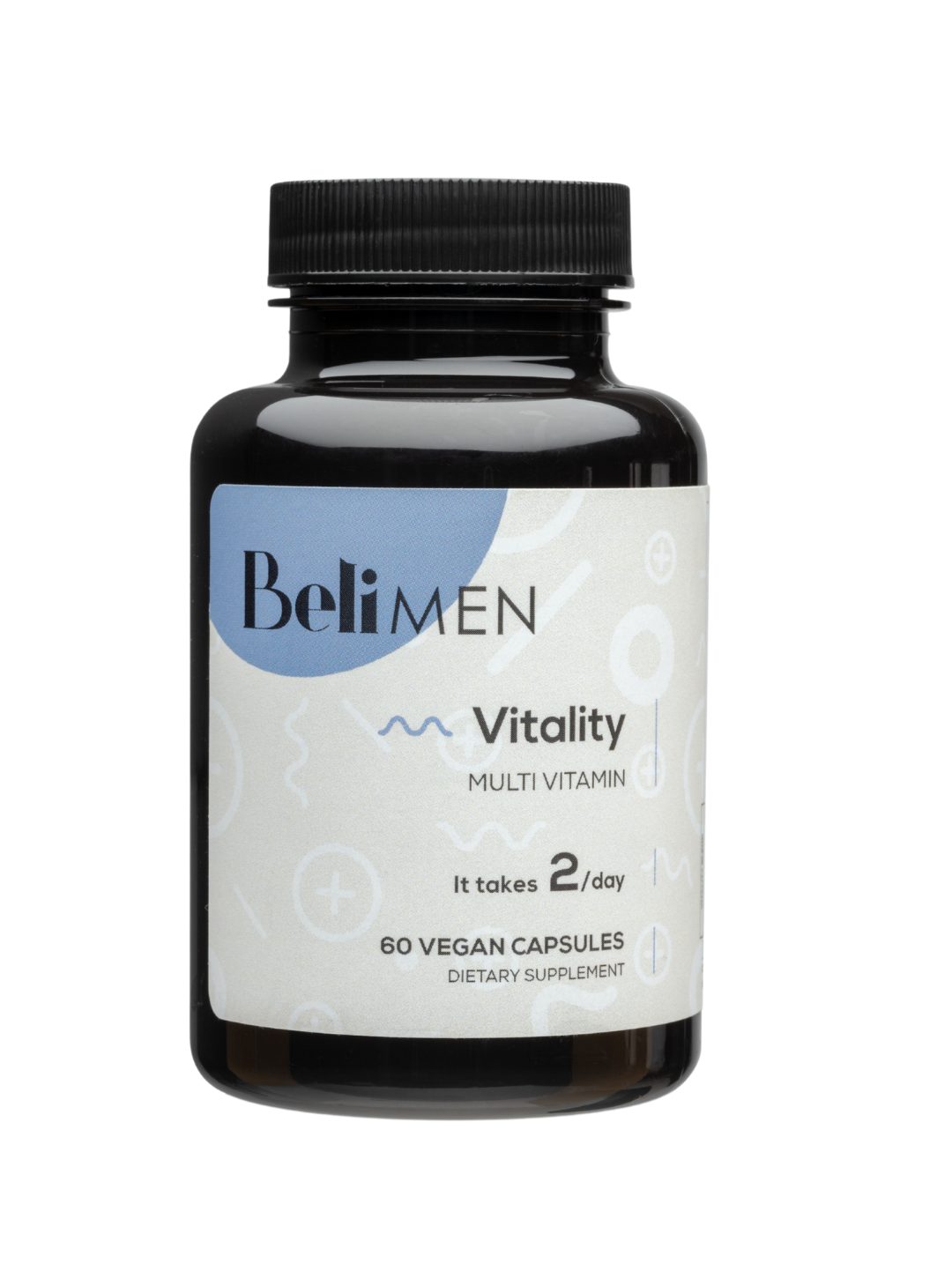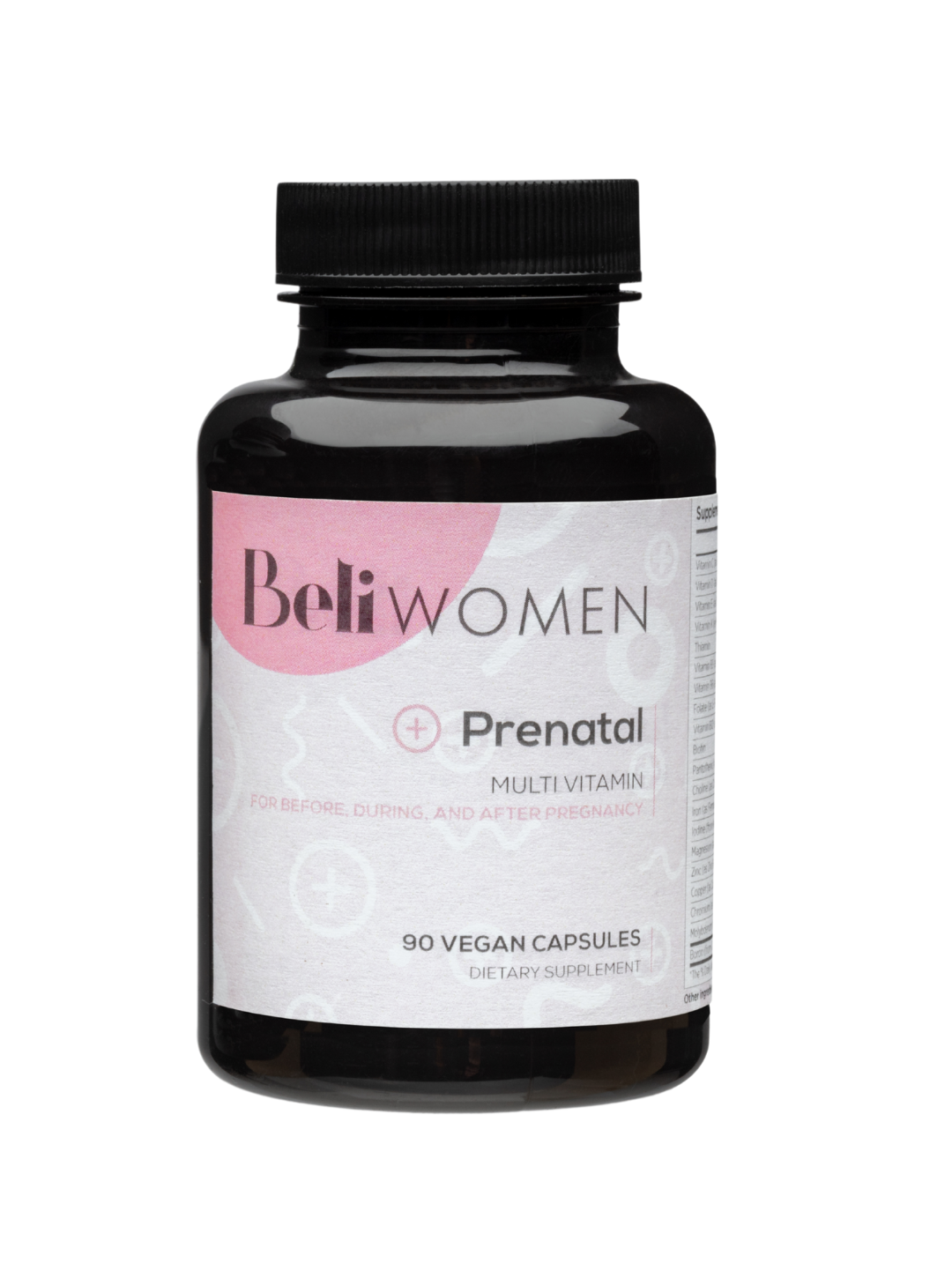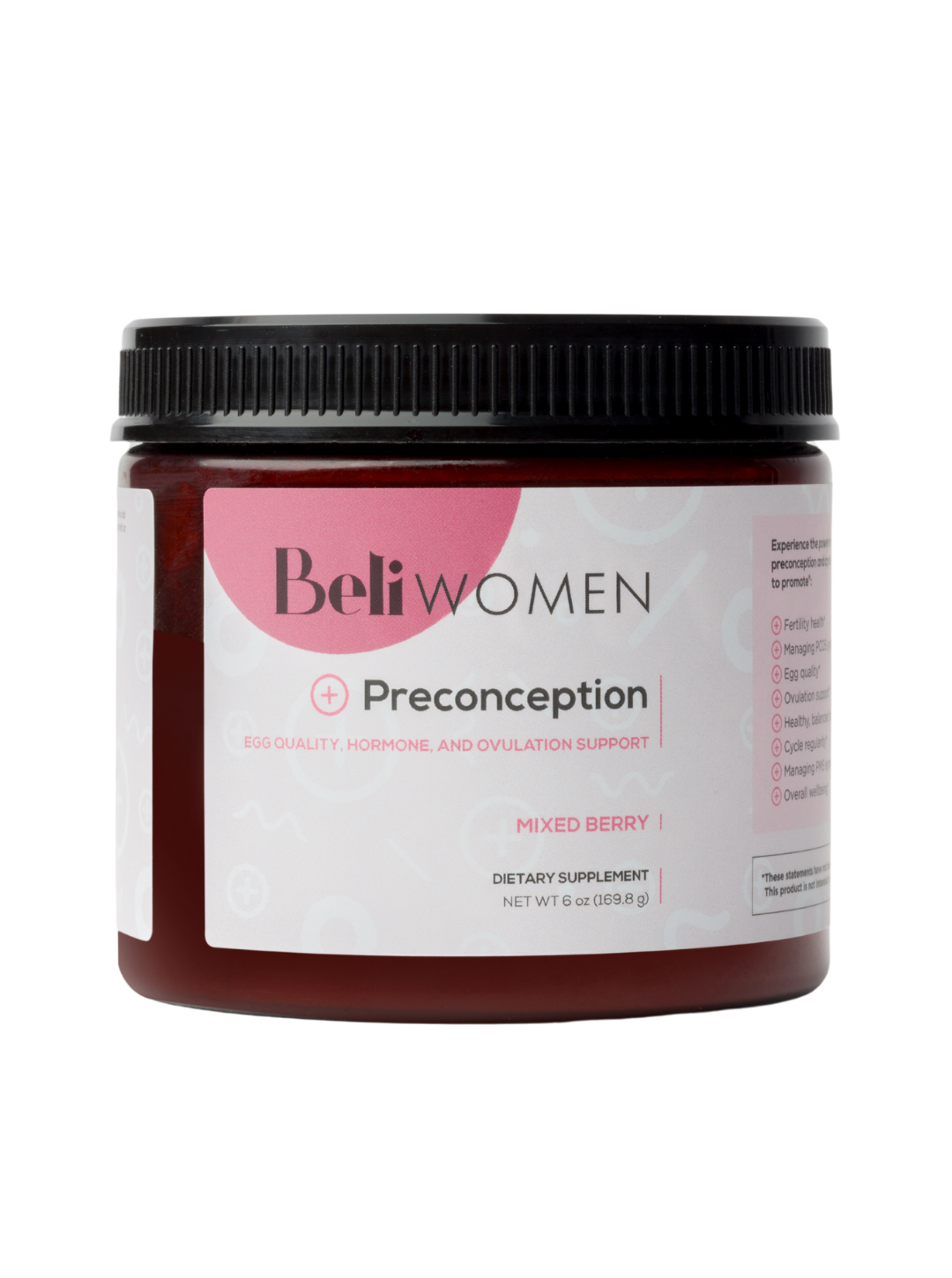For many of us, our twenties and even thirties are a time when the focus is on pregnancy prevention. And that’s okay! But even when the idea of motherhood is miles away there is tremendous value in understanding your fertility health and what you can do to support it during these young, carefree days. Getting intimately acquainted with your cycle and clueing into things like ovulatory health and hormonal balance can help you manage PMS symptoms while also setting the stage for a future pregnancy. And let’s be real—a lack of knowledge about your fertility health and how it relates to your health as a whole can be really damaging, and many women find that out far too late in the game. So with that in mind, here’s what we wish we’d known about fertility health in our 20s.
Your Period Is A Window To Your Fertility
If you aren’t worried about when you ovulate, you may not be all that interested in tracking your period. But familiarizing yourself with your cycle can tell you a lot about your fertility health (not to mention, it can help you prevent pregnancy until the time is right!). While individual cycles vary from month to month and over the course of your life, the length of your cycle can be a window to your fertility.
An average cycle length of 24 to 35 days is an indication of regular ovulation and the hormonal balance necessary to support a natural conception. If you have a shorter cycle of 24 days or less, that might be a sign that ovulation isn’t occurring or that there are fewer eggs in the ovaries. Shorter cycles are also associated with reduced fertility (1). Longer cycles of more than 35 days can also be a warning sign that ovulation is occurring irregularly or not at all.
Ovulation, of course, is the phase in your menstrual cycle during which an egg is released from an ovary in preparation for possible conception. It’s the most fertile time of your cycle, and it typically occurs about 14 days after a period begins. If you’re on hormonal birth control, which isn’t unusual during your 20s, you won’t ovulate. What’s more, it can mask infertility issues that won’t become evident until you stop taking it. That’s because hormonal birth control creates an artificial cycle, which means you really don’t know the regularity and length of your natural cycle. Some birth control methods, like the pill and hormonal IUDs, can also mask symptoms of polycystic ovary syndrome (PCOS).
Your Egg Reserve Is Limited
You probably already know that women are born with all the eggs they’ll ever have (up to two million!). Thousands are lost before puberty, and once menstruation begins, one egg is released every month in preparation for ovulation, while another thousand or so are shed. But no new eggs are ever made, so you get what you get—and your reserves are limited. Once you’re in your 30s, the decline ticks up. That doesn’t mean you should rush a pregnancy, but it’s valuable information to understand. That’s especially true if you decide to pursue something like egg freezing, when it’s particularly important to bump up egg quality first.
And speaking of egg quality, it’s worth knowing that’s something you can support with key nutrients and lifestyle choices. We have an entire blog post outlining five nutrients that studies link to improved egg quality (vitamins B6 and B12, folate, vitamin E and vitamin K2, to be specific). While it’s true that women have a finite amount of eggs, there’s a maturation process that’s roughly 90 days—prime time to make mindful changes to your diet and lifestyle to make them the healthiest you can.
Birth Control Zaps Nutrients
We’re fans of birth control, but there’s a side effect that doesn’t get nearly enough airtime. Birth control won’t damage your fertility—it’s designed to temporarily delay fertility to prevent pregnancy while you’re taking it. But it does deplete the body of specific nutrients, and the list is lengthy: folic acid, vitamins B2, B6, B12, vitamin C, vitamin E, magnesium, selenium and zinc (2). While the depletion is subtle, it can certainly accumulate over the years a woman takes hormonal birth control and may contribute to symptoms like chronic fatigue, a low threshold for activity, difficulty concentrating and moodiness.
The workaround? Take a prenatal vitamin at the same time. “Taking a high-quality and robust prenatal for at least three months before transitioning off of hormonal contraceptives is one of the best steps you can take to prevent post-birth control syndrome,” says Carly Hartwig, a holistic reproductive health advocate and fertility awareness educator through CLWC.
Healthy Habits Go A Long Way
Ovulatory health, egg quality and hormonal balance may not be top of mind in your 20s. Fortunately, the same habits that support your overall health will benefit these and all aspects of your fertility health. You already know that staying active, maintaining a healthy weight, eating antioxidant-rich foods, and limiting alcohol are good for you. Guess what? They’re good for your reproductive health, too. Consider it a great reason to stick with that fitness program and reach for more fruits and veggies. Your future self will thank you!
And while this is a post aimed at women, we'll go ahead and point out that men aren’t immune to thinking ahead if there’s a chance of parenthood in the distant future, either. Keeping tabs on nutrition, maintaining a healthy weight and seriously limiting habits like smoking, recreational drug use and alcohol consumption in your 20s can help support healthy sperm. According to Dr. Darren Bryk, andrology/male fertility fellow at the University of Virginia, “Anything a man can do to improve his overall health–eating healthy, staying active, avoiding cigarette smoking–can improve his fertility potential.”
It’s Never Too Early To Talk To Your Doctor About Fertility Health
A fertility conversation with your doctor may feel premature, but getting ahead of potential issues and understanding the landscape really can help you down the line. Fortunately, there seems to be more fertility awareness these days, with more people looking for information before they’re experiencing problems. At the very least, letting your doctor know that you want a baby someday gives you access to information that you may find really valuable (think: pairing that hormonal birth control with a great prenatal vitamin to sidestep those nutrient deficiencies). At-home fertility testing might be worthwhile as well. They can give you baseline information about fertility-related hormones, such as anti-mullerian hormone (AMH), which is a reflection of your ovarian reserve. While this kind of test won’t be able to tell you whether or not you can successfully conceive, you’ll have an idea of where you are and whether it’s considered normal for your age.
A Proactive Approach to Fertility
If you know you want a baby someday, or even if it’s just not a hard no, then your 20s are a time to be proactive about your fertility health. That starts with a basic understanding of a few things, or at the very least, knowing what you don’t know. If you’re on hormonal birth control and you understand that your cycle is artificial and you’re at risk of nutrient depletion, then you know that it’s wise to supplement with a high-quality prenatal vitamin and do your best to eat a balanced diet. You might also consider a proactive approach to your future fertility. Our new Preconception Boost is designed to support ovulation, balance hormones, promote cycle regularity and manage symptoms of both PMS and PCOS. Those are benefits in the here and now, and over the long term, the same nutrients help set you up for a future pregnancy.
Understanding the relationship between your fertility health and your overall health is nothing but an asset, putting you in the best position to embrace habits that support you in every way, cycle, hormones and egg quality included. As they say, knowledge is power, and the right information today can help you five, ten, fifteen, even twenty years down the road. We support all couples on the path to parenthood, and we understand that it can be a very long journey. Best to start planning now!
Article Resources
- Wesselink et al. (2016). Menstrual cycle characteristics and fecundability in a North American preconception cohort. https://www.ncbi.nlm.nih.gov/pmc/articles/PMC4964792/
- Palmery et al. (2013). Oral contraceptives and changes in nutritional requirements. https://pubmed.ncbi.nlm.nih.gov/23852908/






